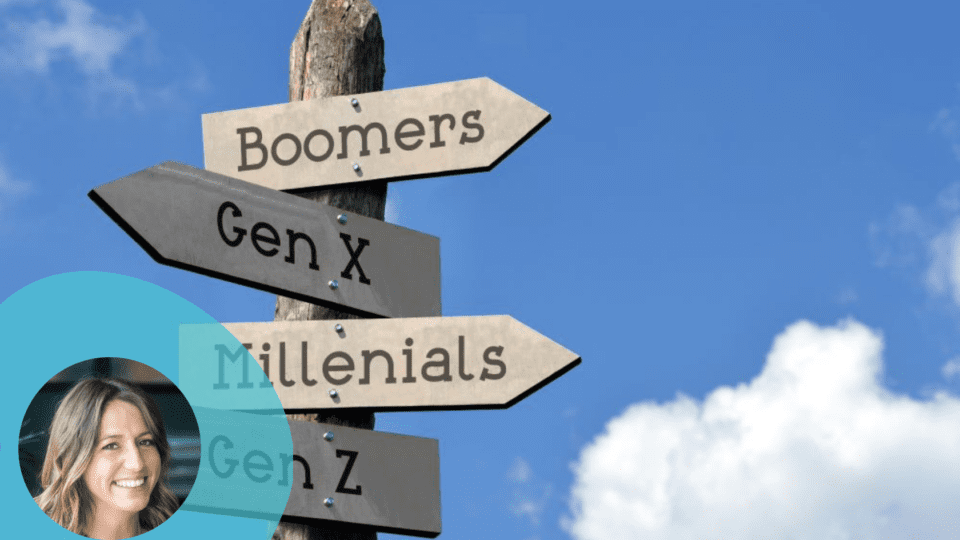It’s no secret that the FMCG industry is fiercely competitive. From laundry detergents to packaged foods, consumers have countless options available to them, and a strong brand is critical to cut through the noise.
Events are one of the most powerful tools a brand can use to build emotional connections with its audiences, boost loyalty and ultimately drive sales. And the demand from consumers is there — according to Eventbrite’s annual forecasting guide, 78% of attendees plan to spend as much or more on events this year as in 2023.
So it’s no wonder that even amid a harsh macroeconomic environment, a recent IPA Bellwether report showed marketers plan to boost their events budget more than any other marketing category in 2024.
However, in FMCG, brands have broad audiences covering every age and demographic, and every generation has different wants and needs. Each must be considered carefully when crafting events to ensure maximum impact.
Advertisement
Broadly speaking, baby boomers (born between 1946 and 1964) value tradition and heritage, prefer in-person interactions over digital interfacing and are loyal customers. Gen X (born 1965 to 1980) seeks authenticity and convenience, wants practical solutions to challenges in their lives and responds well to nostalgia-driven experiences.
Millennials (born between 1981 and 1996) crave experiences over material possessions, attend events that align with their values and embrace technology and social causes. But Gen Z (born 1997 to 2012) are the true digital natives. This group requires brands to grab their attention in an authentic way, which then commits them to doing more of their own research. They also value inclusivity and diversity, and thrive on immersive, exclusive and shareable experiences.
Understanding each of these generations and crafting events accordingly is undoubtedly a tricky challenge, but it can be done with the right tools and tactics.
Research and Personalize
The first step for brands is to tailor their event concept to ensure it will resonate with their target generation. To engage baby boomers, for example, a packaged food brand could host in-person cooking classes featuring nostalgic recipes that use its product.
A millennial audience might be better won over by an eco-friendly pop-up market featuring local artisans. In contrast, a Gen Z audience will enjoy an experience with exclusive product trials and shareable moments. Gen Z may also prefer an experience that leverages new and exciting technologies to create one-of-a-kind experiences, including augmented reality (AR) and virtual reality (VR).
To eliminate any possibility of getting it wrong, brands must thoroughly research their audience before even thinking about an event concept, ensuring they’re giving their target consumers the kind of experience they will most enjoy.
Utilize Social Media
Millennials and Gen Z are highly active on social platforms, which gives brands an excellent opportunity to create buzz around their events. These generations are particularly attracted to experiences they can share on their feeds, so creating photo or video opportunities is a smart move.
Gen Z also faces something of a generational crisis: loneliness. A Business Insider investigation found over a third of Americans aged 18 to 25 frequently feel lonely, and some spend thousands trying to make friends through social clubs and gym memberships.
Brand events can help alleviate this loneliness. Brands should look to create a tribe before, during and after an event, making attendees feel part of a community and movement. Social media is a vital tool in this, allowing brands to build an online community and help attendees form human connections with like-minded people.
But don’t discount the impact social media has on older generations either. A recent study from Wavemaker found that 92% of Gen X consumers use social media every day and are the fastest-growing generation on TikTok.
Strike Strategic Partnerships
Collaborating with influencers, celebrities and other brands can be a highly effective way to engage specific generations. For baby boomers and Gen X, mainstream celebrities may be the most powerful influencers to partner with; for millennials and Gen Z, it may be TikTok stars.
Research shows social influencers’ power over millennials and Gen Z decision-making — 50% have switched to a new brand based on an influencer’s recommendation.
Prioritize Sustainability
Some event trends cross generational borders, and sustainability is one of them. Eventbrite’s report found that two-thirds of attendees feel happier knowing there is a conscious effort to make an event sustainable. That said, it is a higher priority for Gen Z and millennials, as the figure rose to 73% among 21- to 35-year-olds.
The vast majority of attendees (81%) are willing to pay more for a sustainable event, so brands don’t need to fear charging more if necessary. Consider replacing single-use plastics with biodegradable alternatives, using sustainable materials for signage and merchandise, and hiring eco-conscious venues and suppliers.
Unlocking Value Through Events
Most importantly, all events and experiences must stay authentic to the brand. However, FMCG brands can unlock immense potential by tailoring events to specific generations. By understanding their preferences, leveraging social media and partnerships and creating memorable experiences, brands can foster lasting connections and drive long-term business growth.
Jennifer Davidson is the Founder of Sleek Events, a full-service experiential marketing agency that was placed #19 on the Sunday Times Fast Track 100. Having run the agency for over a decade, Davidson’s passion and commitment has shaped Sleek into a symbol of excellence in event management. Davidson’s expertise spans large-scale exhibitions to intimate dinners, managing budgets exceeding £8 million. Her client portfolio includes industry giants like Amazon Web Service, Rubrik, Toyota, Rapid 7, Volvo, Unilever, IBM, HP and Rolls-Royce Motorcars. Beyond professional success, Davidson is passionate about her team’s well-being and a culture of collaboration within the industry. She has also been a part of Goldman Sachs 10KSB Alumni and was included on the shortlist for NatWest’s EveryWoman Awards.




